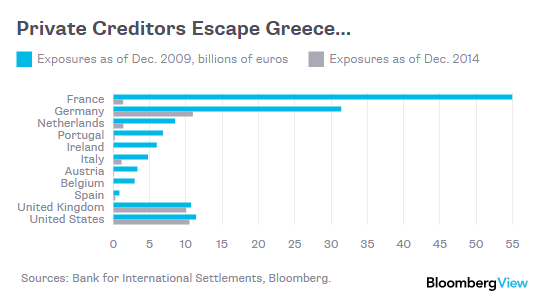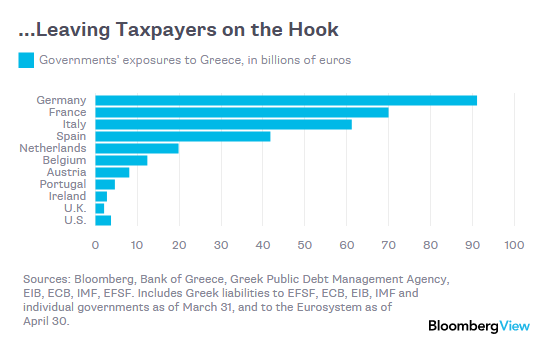Re: Greece / Suicide Rate Surges 35% In 2 Years
A great question verdo.
Over the years iTulip has had much discussion about huge notional values of complex derivatives cascading.
The event most worried about was some black swan event that the computer models failed to include so there was no hedge in place.
Does the failure of Greece to pay the IMF on time trigger credit default swaps and trigger the cascade?
.
.
.
Originally posted by verdo
View Post
Over the years iTulip has had much discussion about huge notional values of complex derivatives cascading.
The event most worried about was some black swan event that the computer models failed to include so there was no hedge in place.
Does the failure of Greece to pay the IMF on time trigger credit default swaps and trigger the cascade?
.
.
.





Comment